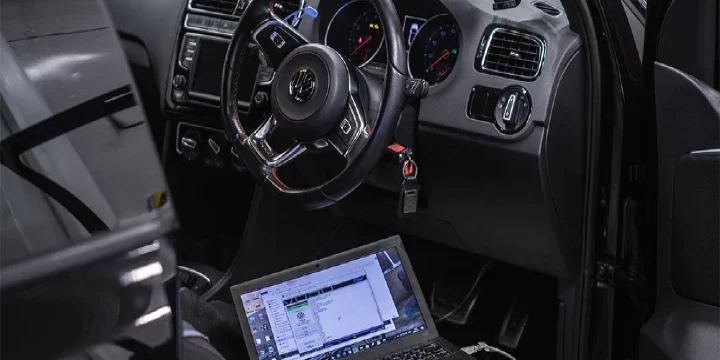In the world of automotive enthusiasts and tuners, the term “Stage 1 remap” is frequently heard, often in hushed tones of excitement. But what exactly is a Stage 1 remap, and how does it impact your car? Is it safe to perform such modifications? In this article, we will delve into the intricacies of Stage 1 remapping to answer these questions.
What Is a Stage 1 Remap?
A Stage 1 remap is a popular and relatively mild form of engine tuning that optimizes a car’s engine control unit (ECU) to improve its performance, without the need for any physical modifications to the engine itself. It is often the first step in the world of car tuning, appealing to those who want a noticeable boost in power and torque without the need for expensive hardware upgrades.
Key Aspects of a Stage 1 Remap:
- ECU Optimization: The core of a Stage 1 remap involves adjusting the parameters in the ECU. This typically includes altering fuel injection, ignition timing, and boost pressure (in turbocharged engines). These adjustments are made to improve engine efficiency and unlock extra power.
- Improved Power and Torque: One of the primary goals of a Stage 1 remap is to increase a car’s power and torque output. The specific gains vary depending on the engine, but it’s not uncommon to see increases of 20-30% in power and torque.
- Enhanced Drivability: In addition to more power, a Stage 1 remap can also result in smoother power delivery, improved throttle response, and better mid-range performance. This can make the car more enjoyable to drive in everyday conditions.
Is Stage 1 Remapping Safe?
Safety is a critical concern when it comes to car modifications, and Stage 1 remapping is generally considered safe when performed by experienced professionals. However, there are some important factors to consider:
- Reputable Tuner: It’s crucial to choose a reputable and experienced tuner who understands the nuances of ECU remapping. A professional tuner will ensure that the modifications are within safe limits and don’t compromise the engine’s reliability.
- Quality of the Tune: The quality of the remap itself is vital. Poorly executed Stage 1 remaps can result in engine damage, poor fuel efficiency, and drivability issues. A good tuner will provide a custom-tailored remap that suits your car’s specific needs.
- Engine Condition: The overall health of your car’s engine is a significant factor. A well-maintained engine with no pre-existing issues is more likely to handle a Stage 1 remap safely.
- Regular Maintenance: After a Stage 1 remap, it’s essential to maintain your car diligently, adhering to recommended service intervals and using the appropriate fuel and oil.
- Warranty Concerns: Some car manufacturers may void your warranty if they find evidence of a Stage 1 remap. Check your warranty terms before proceeding.
Conclusion
A Stage 1 remap is a popular choice for car enthusiasts looking to improve the performance of their vehicles without extensive modifications. When performed by a reputable tuner with care and precision, Stage 1 remapping can be safe and yield impressive results, enhancing power and drivability.
However, it’s essential to remember that, like any car modification, there are potential risks involved. Before getting a Stage 1 remap, consult with a professional tuner, discuss your goals and concerns, and make an informed decision based on your car’s condition and your desire for a more exhilarating driving experience.


